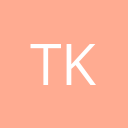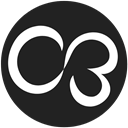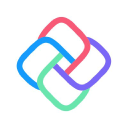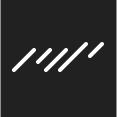Top JavaFX Alternatives for Modern Application Development
JavaFX, powered by OpenJFX, has long been a go-to platform for building rich client applications for desktop, mobile, and embedded systems using Java. Its collaborative, open-source nature has fostered a robust environment for developers. However, the ever-evolving landscape of software development means that exploring new tools and frameworks is essential. Whether you're looking for different language support, specific platform capabilities, or simply a fresh approach, there are numerous compelling JavaFX alternative options available.
Excellent JavaFX Alternatives to Consider
If you're seeking to expand your toolkit beyond JavaFX, or your project demands a different set of features, here’s a curated list of excellent alternatives that offer diverse capabilities for building powerful and engaging applications.

Qt
Qt is a powerful, cross-platform application framework that stands out as a strong JavaFX alternative. It's widely used for developing application software that runs across various operating systems, including Mac, Windows, Linux, and BSD. As a Freemium and Open Source offering, Qt provides a clean API, extensive cross-platform capabilities, and is suitable for desktop and embedded device development, enabling native application creation.

GTK+
GTK+ is a multi-platform toolkit for creating graphical user interfaces, making it a viable JavaFX alternative. It's a free and open-source solution available on Mac, Windows, Linux, and Chrome OS. Offering a complete set of widgets, GTK+ is highly adaptable for various projects and provides excellent cross-platform support and developer tools.

TK
Tk is a free and open-source, cross-platform widget toolkit that provides a library of basic elements for building graphical user interfaces (GUIs). Available on Mac, Windows, Linux, and BSD, Tk is a lightweight JavaFX alternative for those who need a straightforward and efficient way to create GUIs.

CrossBrowdy
CrossBrowdy is a multimedia JavaScript framework that serves as an interesting JavaFX alternative, especially for web-focused applications. It's free and open-source, designed to create real cross-platform and hybrid game engines, games, emulators, multimedia libraries, and apps, with features like cross-platform compatibility, gaming support, and Progressive Web App capabilities.

Agar
Agar is a modern open-source, cross-platform toolkit for graphical applications implemented primarily in C, C++, and Ada. It's a free JavaFX alternative available on Windows, Linux, and BSD, offering strong cross-platform support and developer tools for those working with lower-level languages.

Fox toolkit
The FOX toolkit is an open-source, cross-platform widget toolkit that provides basic elements for building graphical user interfaces (GUIs). As a free JavaFX alternative, it's available on Mac, Windows, and Linux, focusing on providing a robust set of widgets for GUI development.

Uno Platform
Uno Platform is a compelling free and open-source JavaFX alternative that allows developers to build native mobile, desktop, and WebAssembly apps with C# and XAML from a single codebase. It acts as a Universal Windows Platform Bridge, offering cross-platform capabilities, developer tools, native application support, and crucial support for WebAssembly, expanding its reach significantly.

MauiKit
MauiKit is a free and modular front-end framework for developing fast and powerful user experiences. Available as an open-source JavaFX alternative on Linux and Android, it provides a valuable GUI Designer, making it a strong choice for those focused on creating modern and efficient interfaces.
Ultimately, the best JavaFX alternative depends on your specific project requirements, preferred programming languages, and target platforms. Each of these options brings unique strengths to the table, from robust cross-platform capabilities to specialized features for web or native development. We encourage you to explore each one to find the perfect fit for your next application.